this is SPAIA
MEASURING ENVIRONMENTAL IMPACT WITH THE HELP OF INSECT MONITORING
Step into the world of SPAIA and their innovative approach to environmental impact monitoring. Learn how they're leveraging insect data to drive positive change in biodiversity and ecosystem health.
Step into the world of SPAIA and their approach to environmental impact monitoring. Learn how they’re leveraging insect data to drive positive change in biodiversity and ecosystem health.
“We’re on a mission to help curb one of the planet’s most pressing wicked challenges. And we’re doing this by partnering with insects.”
This is how SPAIA introduces themselves when asked about their vision. Founding members Tom, Collette, and Brodie, explain the big problem as follows:
Insects are essential to healthy ecosystems and a healthy population has a direct positive environmental impact. However, recent studies have alerted us to mass insect declines in regions across the globe. These are thought to be at the center of what scientists are warning is a global mass extinction crisis, driven by human activities such as urbanization and agriculture. Governments and consumers are increasingly demanding accountability from these sectors to mitigate their environmental impact. In addition, businesses have to navigate a slew of new reporting regulations like the Corporate Sustainability Reporting Directive (CSRD) or Biodiversity Net Gains (BNG).
The good news? Insects recover quickly, making them powerful allies in biodiversity restoration and reliable indicators of ecosystem health improvements.
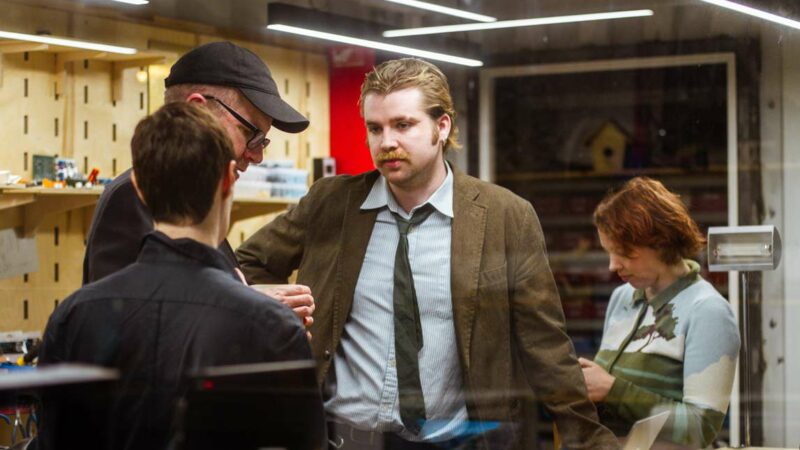
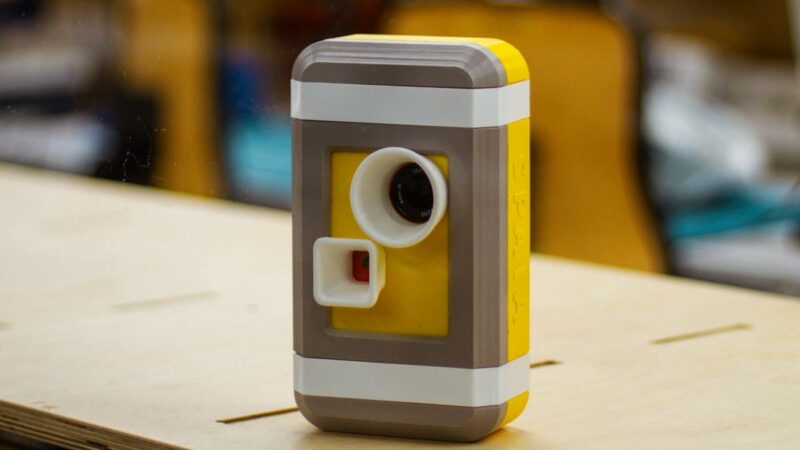
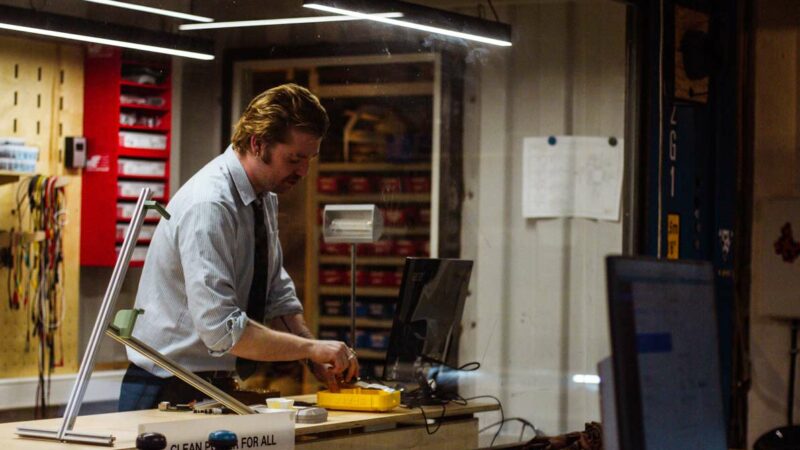
AN ECOSYSTEM HEALTH PLATFORM POWERED BY INSECTS
The team’s solution: “Our innovative data platform integrates smart insect monitors to track insect activity and a collaborative web interface for mapping and managing data.” This platform allows businesses and communities to support critical insect populations and monitor insect activity on the ground, gathering valuable raw data. Using community validation and AI recognition, this data is turned into detailed reports with images, infographics, and improvement ideas. “Our solution helps businesses meet environmental goals, assists researchers in accessing diverse insect data, and empowers communities to validate business actions and their environmental impact.”
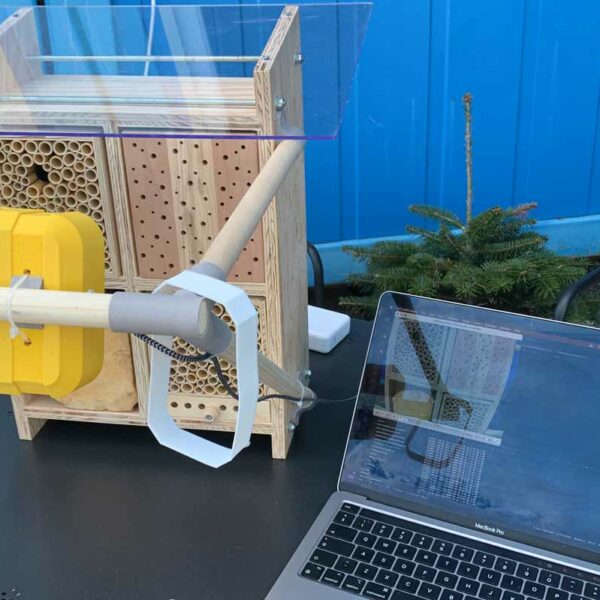
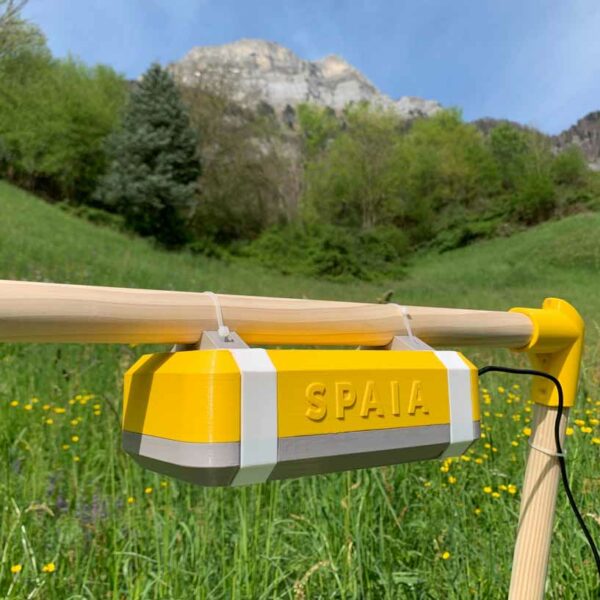
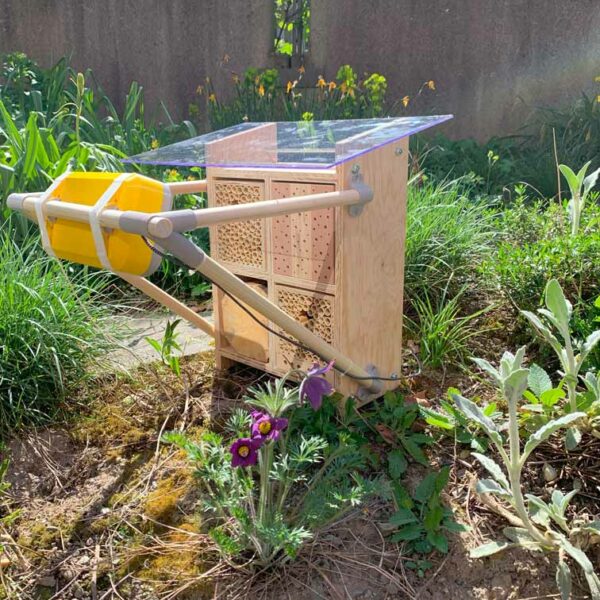
SPAIA’S JOURNEY IN OUR ACCELERATOR PROGRAM
The program played a pivotal role in refining their business plan, securing their first paid pilot project and their journey towards environmental impact.
The team joined the Hardtech Innovation Accelerator Program in November 2023. Their goal for the program was to identify the best-fit target market, refine the business plan, secure a first paid pilot, and enhance their insect-sensing approach. They’ve now narrowed their potential market down and recently launched their first paid pilot project in Zurich – congratulations!
Engaging with MotionLab.Berlin was crucial for SPAIA within the program. “We’re still working on validating our hardware monitoring solution and gathering user feedback,” summarizes Collette. “MotionLab.Berlin and its diverse community hold a special place in our hearts. The mix of engineers, makers, artists, and business minds creates a unique dynamic in the Berlin startup ecosystem. There’s a certain magic in a space where people unite to create tangible solutions. The level of creative problem-solving and collaboration here is unmatched.”
SPAIA'S KEY LESSONS & INSIGHTS
The (hardware) startup journey can indeed be incredibly challenging, often surpassing initial expectations. However, being part of a supportive community of startups facing similar hurdles, coupled with the guidance of dedicated mentors, has proven beneficial for SPAIA.
Among the most helpful workshops in the program was Tayla Sheldrake’s rapid prototyping workshop, which greatly contributed to team building and prototyping. Georg’s financial modeling workshop was “a game changer”, especially given their technical and creative background. Dan Shor’s workshop on hardware development stood out, as it offered practical strategies for efficient processes. Additionally, pitching practice, mentoring, funding workshops, and access to the labs were essential components of the journey.
From this, the SPAIA team gathered three big learnings for us:
- Surround yourself with people who understand and support your vision, as well as those who don’t. The first group will give you the energy to keep going, the second group will help you identify weaknesses in your idea and challenge you to address them. Both have a critical role to play.
- Being early to a market is challenging, chances are that people are going to push you to pivot. If you believe your vision is worth it, find the validation that you personally need to keep pushing it forward. Then decide how much (time and funds) you are willing to commit and go for it. But be clear on your cut-off.
- Complex problems might require complex solutions. Finding a way to explain the complex solution simply is where the magic happens and what helped a lot in the prototyping process of the environmental impact measuring plattform.
THE TEAM & THEIR MOTIVATION
And you might wonder, who is the team who loves working with insects?
Tom Cox brings over a decade of experience in insect technology, specializing in software development to manage one of the world’s largest wild bee populations. As a self-proclaimed “tech humanist,” he is deeply committed to leveraging technology to foster a stronger connection between humans and the natural world. Known for his dedication as a problem solver and ideator, Tom thrives on tackling challenges until they are resolved. You can most likely find Tom deep in thought behind a computer screen or carefully surveying the MotionLab.Berlin grounds and poking around in the pot plants (along with Collette) for viable test subjects.
Then there is Collette Wasielewski, who has been monitoring insects since she could walk. Over her lifetime, she witnessed the alarming decline in insect populations and the tiny creatures that depend on them. Although originally drawn to conservation, Collette redirected her focus to design, recognizing the power of innovative creative solutions to effect positive changes and environmental impact. She has a lot of experience leading cross-functional teams to develop brands that have an effect on how people behave. Collette moved to the startup world because she believes early solutions can fix big problems. Now, she’s guiding SPAIA to make a transformative impact, potentially saving the planet, one insect at a time.
And last but not least: Brodie O’Sullivan. With pioneering work in image-guided surgery, cancer detection, and satellite power systems, Brodie brings his wealth of expertise in sensing technologies to steer the development of SPAIA’s innovative hardware solutions. With a deep commitment to community engagement and environmental impact, Brodie is dedicated to crafting state-of-the-art sensing solutions that drive positive change. He is a permanent resident in the electronics lab and can often be found swinging pendulums, rolling tiny balls of various sizes past various sensors, or gathering dead flies to flick at radar modules and other fascinating experiments. He’s also a killer chef, and his culinary skills are best enjoyed at one of MotionLab.Berlin’s many events.
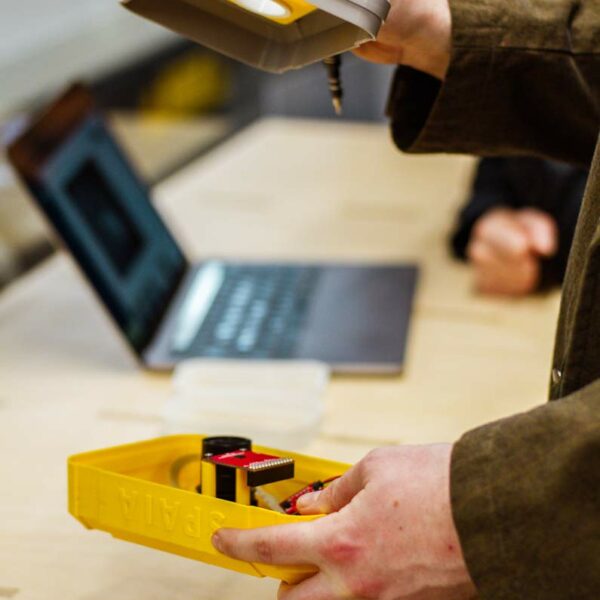
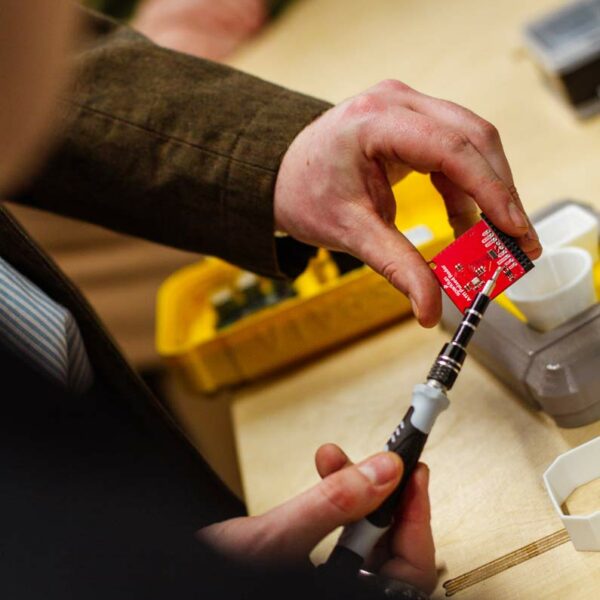
THE VISION BEHIND IT
“The world needs more urgent optimism… We have the chance to be the pioneers in improving the environmental legacy for future generations.”
Hannah Ritchie, Not the End of the World
Our primary goal is to help businesses take quick and positive steps for the environment. Sometimes, people feel overwhelmed by negative stories about the environment or unclear rules. This can make them worry about being seen as ‘greenwashing.’ But even small actions can make a big difference on their environmental impact. For example, helping insect populations can be affordable and show results fast. Also, it can support bigger projects that need more information or stories.”
HOW TO IMPROVE YOUR ENVIRONMENTAL IMPACT & EFFORTS?
Currently, the team is dedicated to initiating more pilot projects to validate the effectiveness of their solutions, starting in Zurich and Berlin and then expanding throughout Europe. They’re actively seeking partnerships in sectors like regenerative agriculture, construction, and urban rewilding that need to demonstrate a positive environmental impact on biodiversity.
“Join us as we partner with insects to help bring our ecosystems back to life – from city streets to countryside fields!” Reach out to the SPAIA team to discover more about how you can improve your environmental impact and efforts using their platform, scientific and community resources, detailed data, and visuals. You can also sign up on the website as a citizen scientist to assist in verifying insect sightings and classifications.
OUR HARDTECH INNOVATION PROGRAM
IS SUPPORTED BY
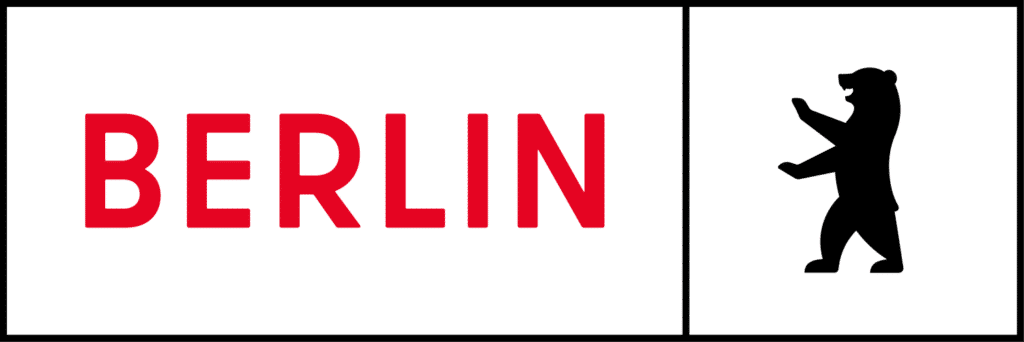
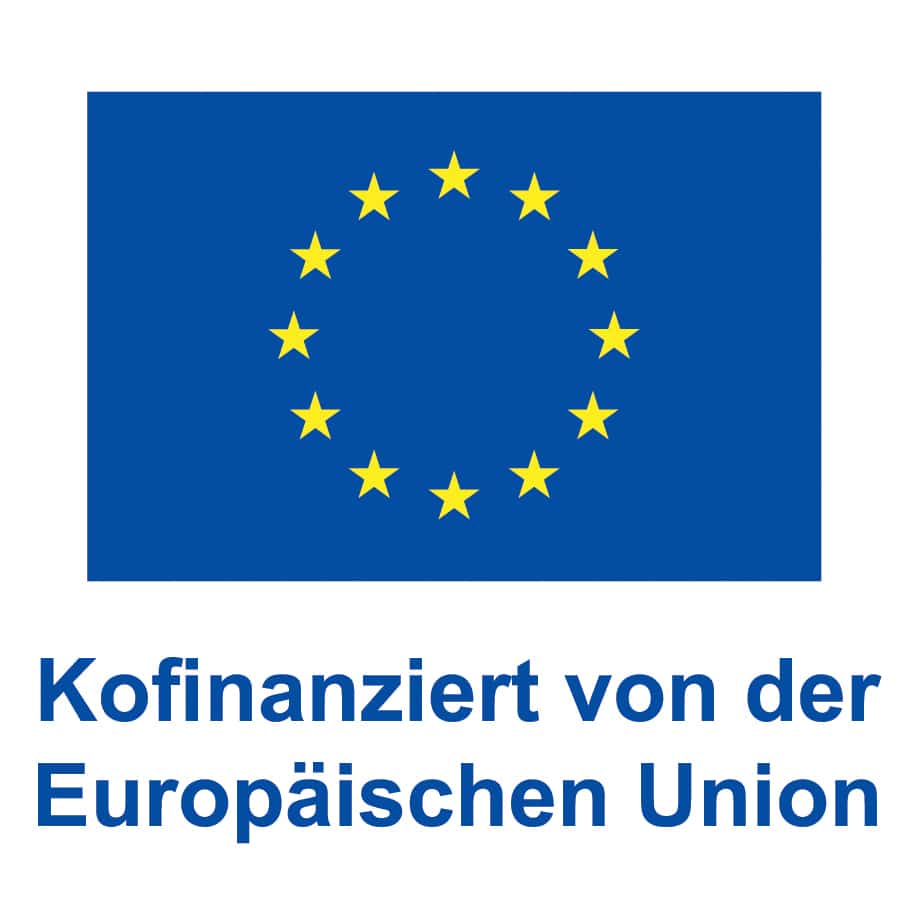
GET TO KNOW THE TEAMS
JOIN OUR DEMO DAY!
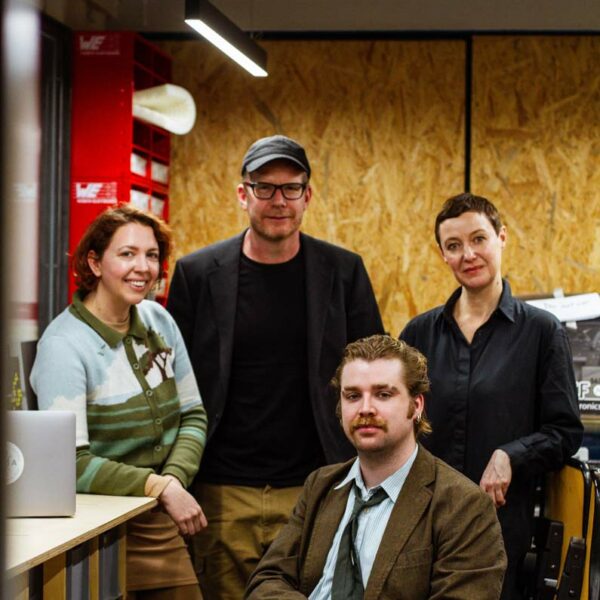
You want to meet SPAIA and get to know their innovative plattform for measuring environmental impact through insect monitoring personally? Or do you want to get to know the other startups from our current Hardtech Innovation program as well? Join us at our Demo Day on the 31st of May at MotionLab.Berlin and celebrate with us our amazing startups, their solutions and developments! Sign up here.
The Hardtech Innovation program is supported by funds from the European Union (European Social Fund) and the State of Berlin.
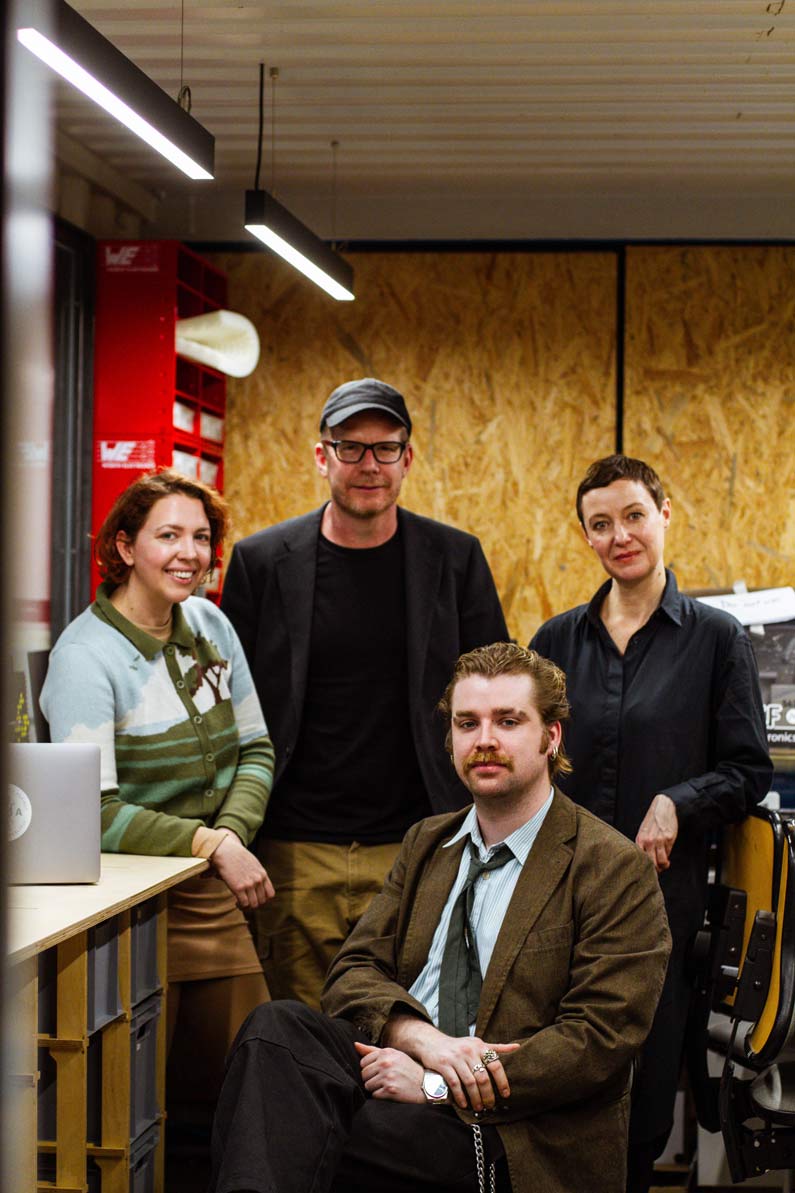
You want to meet SPAIA and get to know their innovative plattform for measuring environmental impact through insect monitoring personally? Or do you want to get to know the other startups from our current Hardtech Innovation program as well? Join us at our Demo Day on the 31st of May at MotionLab.Berlin and celebrate with us our amazing startups, their solutions and developments! Sign up here.
The Hardtech Innovation program is supported by funds from the European Union (European Social Fund) and the State of Berlin.
HARDTECH INNOVATION PROGRAM
IS SUPPORTED BY




